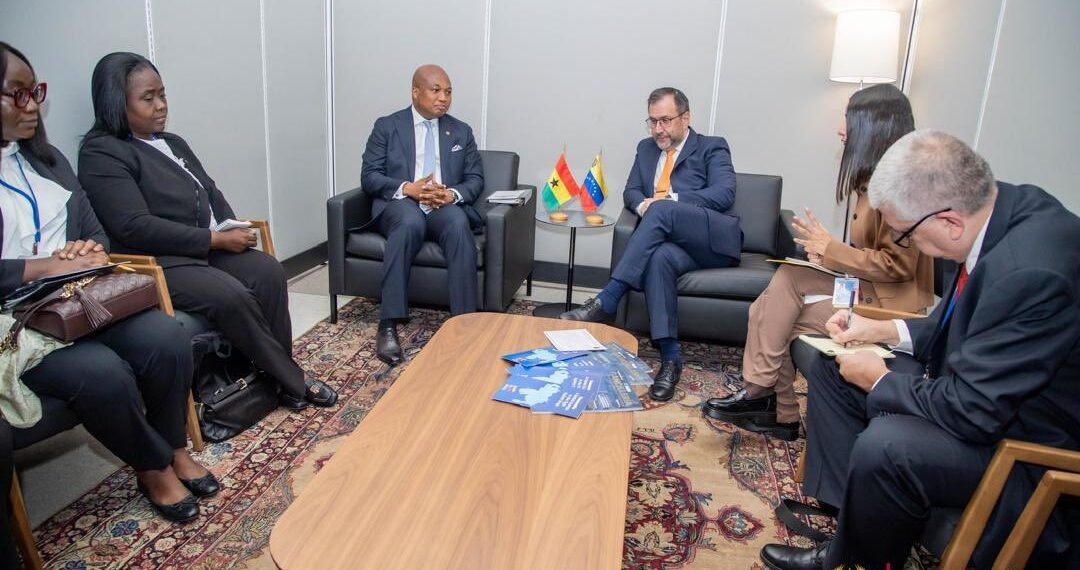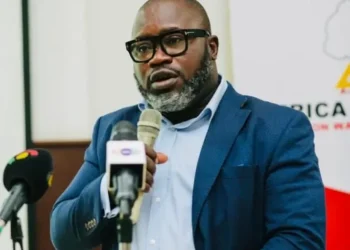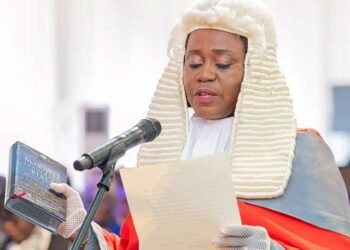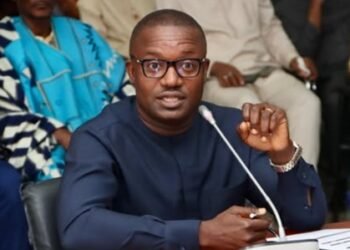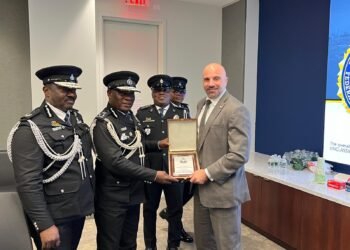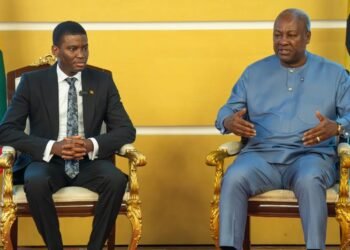Ghana’s Foreign Affairs Minister, Hon. Samuel Okudzeto Ablakwa, has announced a series of new agreements and strengthened partnerships following high-level bilateral meetings on the margins of the 80th United Nations General Assembly (UNGA80) in New York.
The engagements, which spanned four continents, covered issues ranging from diplomatic missions and scholarships to visa waivers, energy cooperation, and agricultural mechanisation. At the centre of these developments was Venezuela’s decision to open a new embassy in Accra, a move hailed as a milestone in the longstanding friendship between the two nations.
Venezuelan Foreign Minister, His Excellency Yván Gil, praised Ghana for its consistent defence of international law and pledged an expansion of cooperation, particularly in agriculture and energy.
“Venezuela will soon open an embassy in Africa, with Accra chosen as the host city,” His Excellency Gil said, and further announced new scholarships for Ghanaian students.
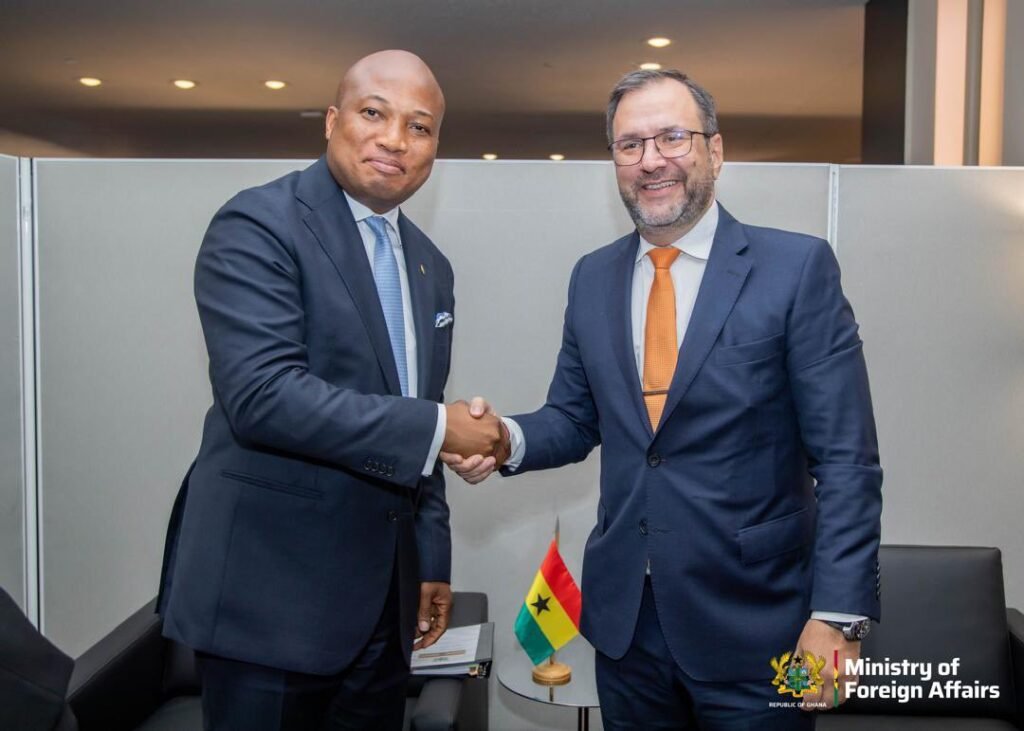
Hon. Ablakwa welcomed the decision, noting that Ghana would provide “full support for the establishment of the embassy,” and would reciprocate by opening a mission in Venezuela in the future. He thanked Venezuela for the additional scholarship opportunities and proposed cultural exchanges for Venezuelan students.
Ghana-Finland, Ghana-Caribbean Relations
Another key highlight was Ghana’s engagement with Antigua and Barbuda – an independent, twin-island Caribbean nation – which culminated in the signing of a Visa Waiver Agreement covering ordinary, service, and diplomatic passports.
According to the Foreign Affairs Ministry, the agreement aims to “facilitate mobility and remove travel barriers,” that have long hindered cultural and educational exchanges between Africa and the Caribbean.
During the meeting, Hon. Ablakwa underscored Ghana’s focus on reparations, stressing that President John Dramani Mahama intends to sponsor a motion to place reparations on the same footing as genocide and xenophobia in international discourse. He also noted that restrictive transit visa requirements had obstructed meaningful engagement between African and Caribbean states.

Antigua and Barbuda’s Foreign Minister, Honourable E.P. Chet Greene, commended Ghana’s intervention, describing it as both timely and aligned with the themes of the United Nations General Debate.
“Ghana’s strong message underscored the need for Africa and the Caribbean to work more closely together,” Honourable Greene added, stressing that relations between the two regions were rooted in shared history and culture, and emphasised the importance of establishing direct travel routes to remove obstacles to exchanges.
In his discussions with Finland’s Foreign Minister, Honourable Elina Valtonen, Hon. Ablakwa reaffirmed Ghana’s support for Finland’s global role in peace and security. He welcomed Finland’s principled approach to international affairs and its contributions to “stability and cooperation at the multilateral level.”
Looking ahead, both sides agreed to use the upcoming 50th anniversary of diplomatic relations in 2027 as a platform to deepen collaboration in trade, education, technology, climate resilience, and peacebuilding.
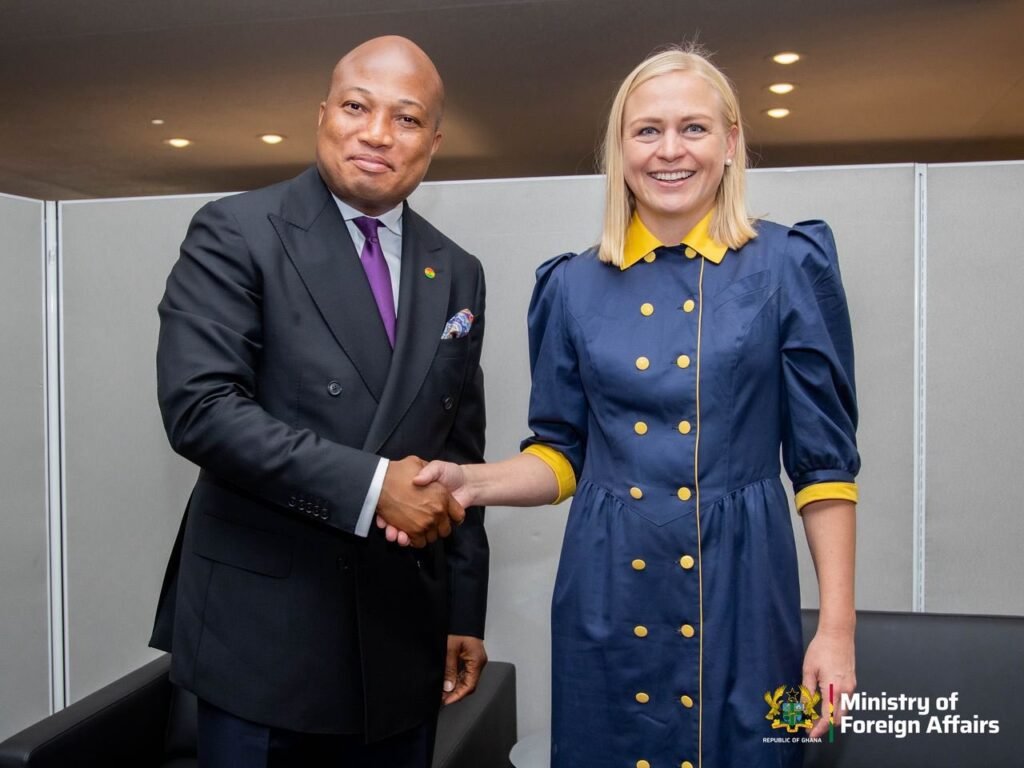
Hon. Ablakwa also proposed the establishment of diplomatic missions to strengthen institutional cooperation and people-to-people engagements.
Agricultural Cooperation
In a separate engagement, Belarus’ Minister Maxim Ryzhenkov outlined potential areas of cooperation, acknowledging that current relations with Ghana remained underdeveloped but full of opportunity.
He recalled President John Dramani Mahama’s visit to Belarus before his election, describing it as a foundation for stronger ties.
“One of the key entry points for partnership could be through agricultural mechanisation,” His Excellency Ryzhenkov said, adding that Belarus could provide advanced farming equipment, services, and training to enhance Ghana’s productivity.
Hon. Ablakwa expressed appreciation for the invitation to visit Belarus, noting the country’s technological expertise in agriculture and affirmed that Ghana viewed Belarus as a potential partner in modernising its agricultural sector.
These high-level bilateral engagements on the margins of UNGA80 reflected Ghana’s wider foreign policy vision under President Mahama, focusing on building bridges across regions while pursuing practical partnerships in energy, trade, education, agriculture, and cultural exchanges.
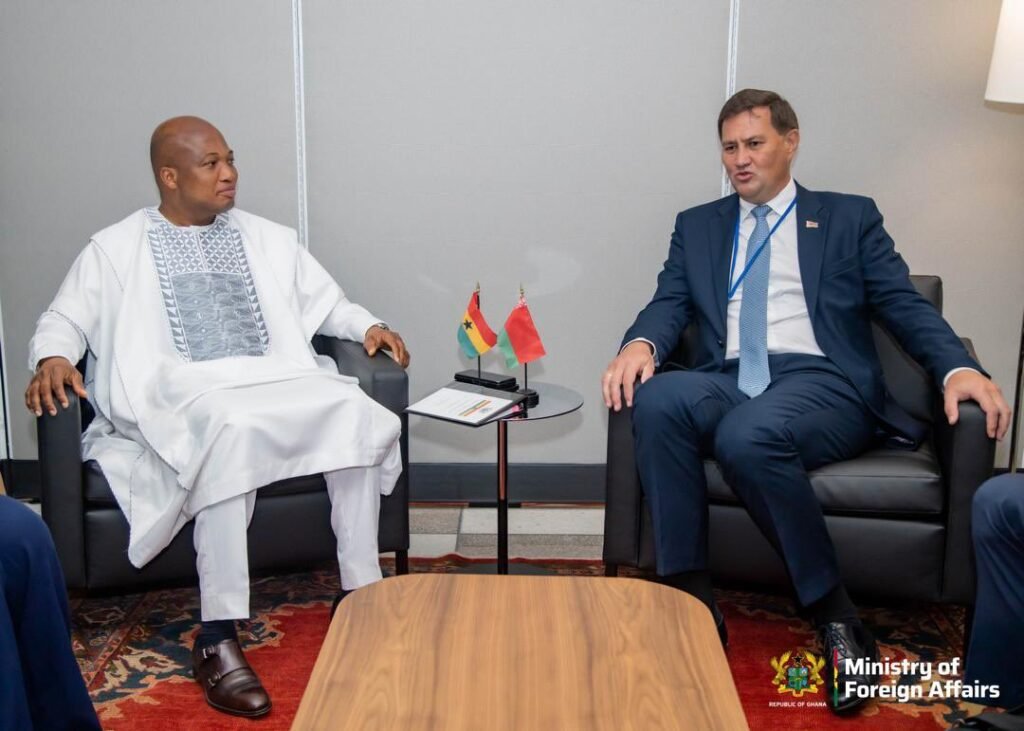
The meetings underscored Ghana’s active role on the global stage, not only advocating for historical justice through reparations but also pushing for economic, social, and technological collaborations that directly benefit its citizens.
As Hon. Ablakwa stressed throughout his engagements, Ghana remains committed to fostering both regional and intercontinental cooperation, ensuring that the nation’s diplomacy translates into tangible gains for its people while strengthening solidarity across Africa, the Caribbean, Europe, and beyond.
READ ALSO: Botswana Turns To Investment Citizenship For Growth



